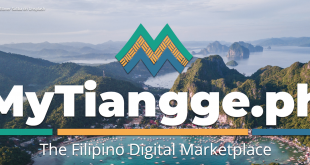
Micro, small, and medium enterprises or MSMEs play an all-important role in the Philippines’ economic development. As of 2018, MSMEs account for 35% of the Gross Domestic Product and 25% of the country’s total export revenue. A whopping 99.52% of all businesses here are MSMEs.
MSMEs are responsible for 63.19% of the country’s total employment. That means it has generated over 5.7M jobs for the Filipino labor force. With such an impact on our economy, it is imperative to have laws in place to support the sector.

Magna Carta for Micro, Small and Medium Enterprises
Enacted in 2008, Republic Act No. 9501 or the Magna Carta for Micro, Small and Medium Enterprises amended prior acts RA 8289 in 1997 and RA 6977 in 1991. These laws aimed to define the national policy to encourage the growth of MSMEs.
Section 4 discusses eligibility for government assistance, which will be coursed through SB Corporation, a DTI-attached agency. These are the business qualifications required:
- Duly registered with the appropriate agencies
- If the business is a single proprietorship or partnership, it must be 100% owned and capitalized by Filipino citizens. If the enterprise is a juridical entity, at least 60% of its capital or outstanding stocks must be owned by Filipino citizens.
- Business activity is within the major sectors of the economy (e.g. industry, trade, professional practice, agri-business)
- Must not be a branch, subsidiary, or division of a large-scale enterprise
In addition, RA9501 also laid out the guiding principles on MSME development. To promote growth, government agencies must have minimum regulation, procedural rules, and requirements. This entails strong coordination within agencies and decentralization through the establishment of regional and provincial offices for efficiency. The act also details the private sector as a key partner in building up MSMEs.

The role of the private sector
The Department of Trade and Industry (DTI) has launched several SME-geared projects in collaboration with the private sector.
Project KAPATID, a coaching and mentoring program, facilitates knowledge sharing between large corporations and MSMEs. Similarly, the SME Roving Academy, which aims to educate SMEs and make them more competitive locally and internationally.
Moreover, MSMEs are equipped with an information technology tool like the Tradeline Philippines, where they can access trade statistics reports and supplier databases.

Support for local businesses
Although there are still financial constraints when it comes to starting a business, these MSME policies are continuously improved to better serve the growing sector. As Filipino citizens, our support for MSMEs must go hand in hand with the government’s enacted laws.
Sources: Business World, Senate of the Philippines, Department of Trade and Industry, SME Finance Forum, The Corpus Juris
 Empowered Life Empowering The Filipino
Empowered Life Empowering The Filipino



